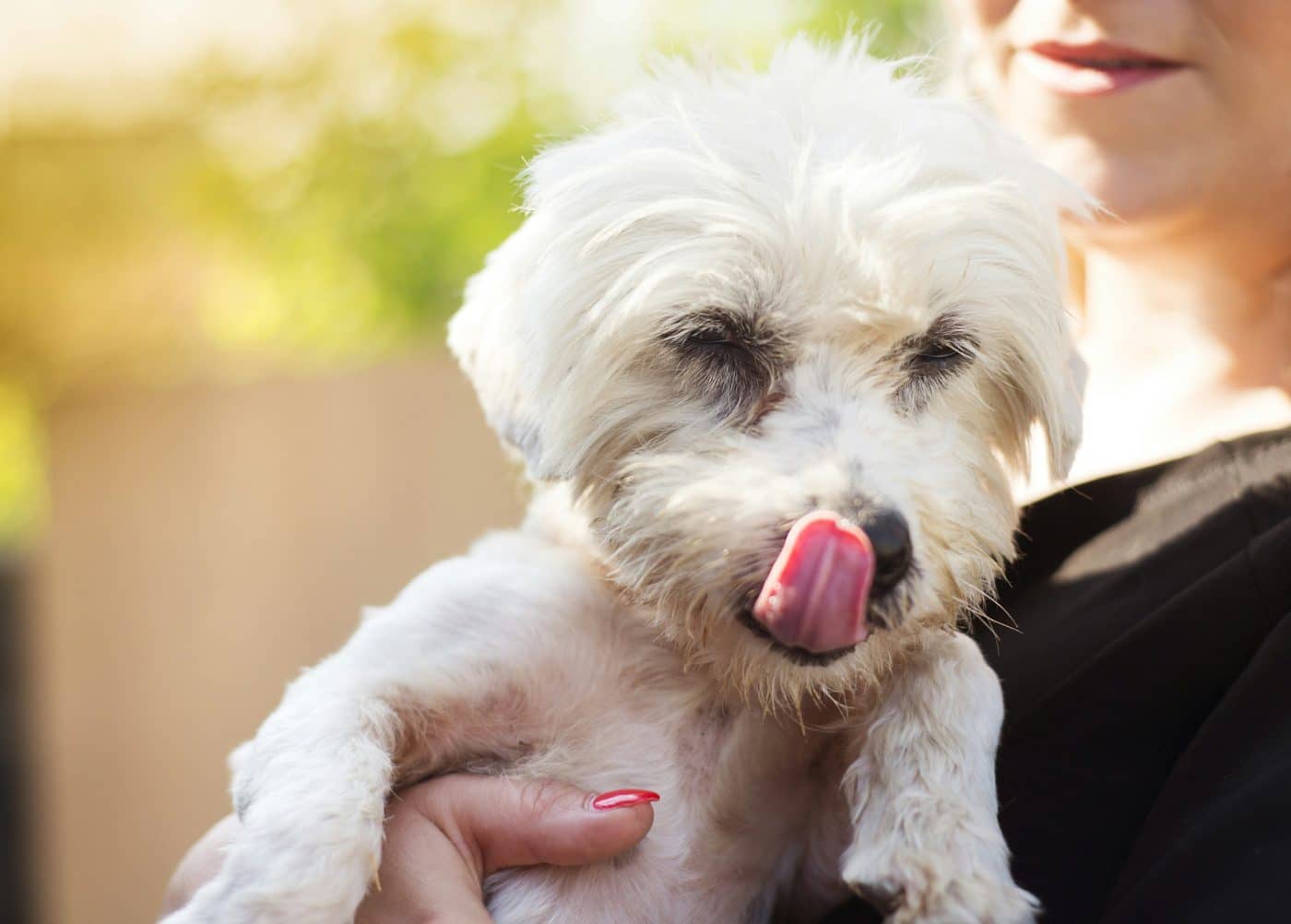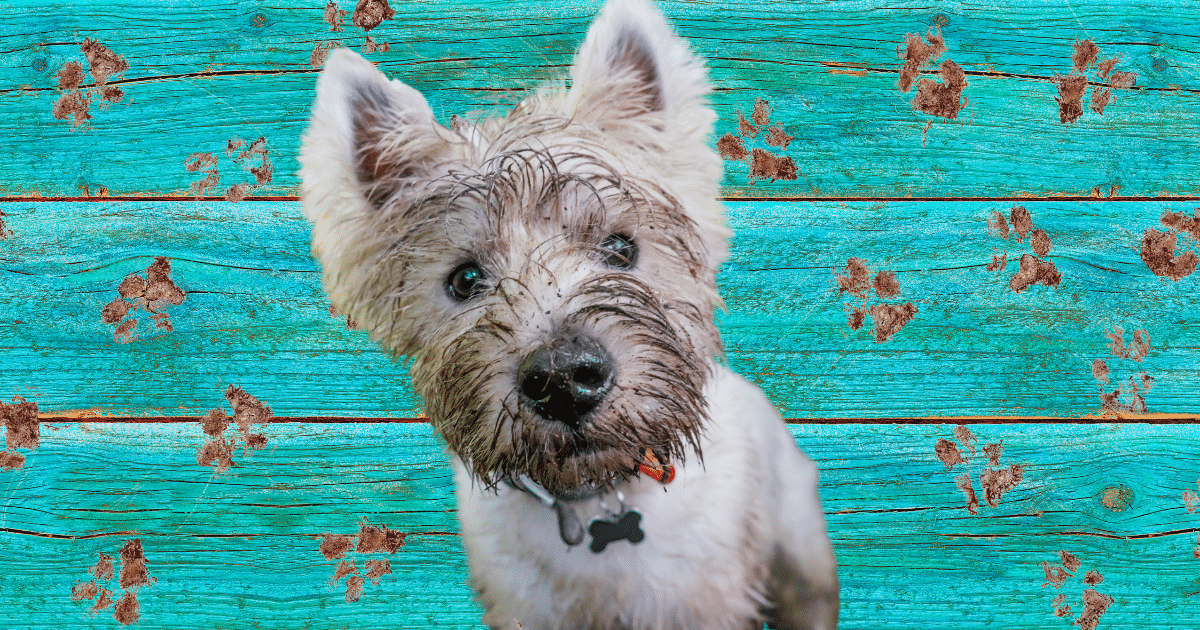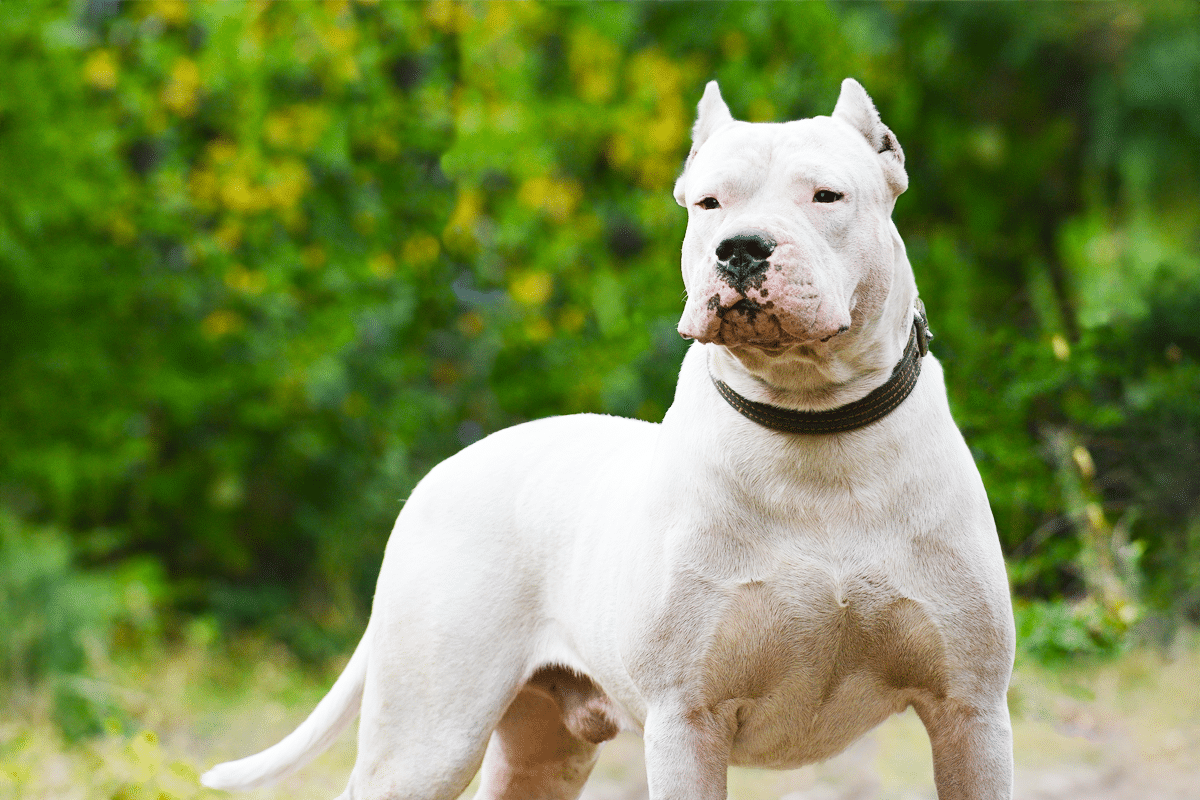 Shutterstock
Shutterstock
Dogs may not use words, but they have many ways to tell us when something is wrong. Through subtle body language and behavioral changes, they communicate emotions that humans often overlook. A happy dog plays with its tail and enjoys life, but the signs can be easy to miss when they’re feeling down. Changes in appetite, excessive licking, or unusual behavior might be their way of asking for help. Noticing these signs can ensure your pup stays happy, comfortable, and well-cared for.
 Shutterstock
Shutterstock
A dog suddenly avoiding eye contact may feel anxious, stressed, or upset. While some breeds are naturally more reserved, a normally affectionate dog that refuses to look at you might be expressing discomfort. Dogs use eye contact to bond with their humans, so when they start dodging your gaze, it’s often a sign that they feel uneasy. If this happens, try to assess what has changed in their environment that might be causing distress.
Excessive Licking or Chewing
 Shutterstock
Shutterstock
If your dog is constantly licking their paws or chewing on their body, it might not just be an itchy skin issue but a sign of stress or unhappiness. Dogs often engage in repetitive behaviors as a way to self-soothe, similar to how humans might bite their nails. If your pup is obsessively licking, check for any physical issues first, but also consider if something in their daily routine has changed that might be causing anxiety.
Sudden Destructive Behavior
 Shutterstock
Shutterstock
A happy dog is usually content with their surroundings, but when they start destroying furniture, shoes, or anything else they can sink their teeth into, it might be their way of expressing frustration. Boredom, lack of exercise, or being left alone too long can trigger destructive tendencies. Dogs need mental stimulation and physical activity to stay happy, so if your dog is suddenly tearing up the house, they may be trying to tell you they need more engagement.
Loss of Interest in Playtime
 Shutterstock
Shutterstock
If your normally playful dog suddenly loses interest in their favorite toys or games, it’s a major red flag that something is wrong. Play is a natural way for dogs to express happiness, and when that enthusiasm fades, it could be due to stress, illness, or emotional distress. A change in playfulness is a clear indicator that your dog is feeling off, and it’s worth investigating the root cause.
Hiding or Seeking Isolation
 Shutterstock
Shutterstock
A social dog that suddenly starts hiding under furniture, avoiding interaction, or seeking solitude might be experiencing sadness or anxiety. Dogs are pack animals, and while some enjoy alone time, excessive isolation can signal distress. If your dog avoids family members or their usual favorite spots, they might feel overwhelmed or unwell.
Excessive Whining or Barking
 Shutterstock
Shutterstock
Dogs communicate through vocalizations, and an increase in whining, howling, or barking could be their way of telling you they’re not happy. While some breeds are naturally more vocal, a sudden change in their normal barking behavior is worth paying attention to. If your dog whines excessively or barks at seemingly nothing, they might feel lonely, anxious, or frustrated.
Changes in Eating Habits
 Shutterstock
Shutterstock
A dog that suddenly stops eating or becomes disinterested in food might be experiencing emotional distress. Like humans, dogs can lose their appetite when feeling down. On the other hand, some dogs may start overeating as a way to cope with stress. Any noticeable change in eating patterns should be monitored closely, as it could indicate emotional and physical health issues.
Pacing or Restlessness
 Shutterstock
Shutterstock
Restlessness, pacing, or an inability to settle down can indicate stress or discomfort in dogs. If your dog seems unable to relax, constantly moving from one spot to another, they might feel anxious. Dogs that suddenly develop pacing behaviors may try to work off nervous energy or communicate that something in their environment is making them uneasy.
Sleeping More Than Usual
 Shutterstock
Shutterstock
While naps are a normal part of a dog’s routine, excessive sleeping can indicate sadness or depression. If your normally active dog starts sleeping significantly more and shows little interest in their usual activities, they may feel down. A drastic increase in sleep should always be taken seriously, as it can be a sign of underlying health or emotional concerns.
Avoiding Physical Touch
 Shutterstock
Shutterstock
Most dogs love a good belly rub or head scratch, so when they start pulling away from affection, it can be a sign that something is off. A dog that flinches or avoids being petted may feel anxious, unwell, or simply unhappy with their current situation. If your pup usually loves cuddles but suddenly withdraws, it’s worth assessing their emotional and physical well-being.
Frequent Yawning or Lip Licking
 Shutterstock
Shutterstock
While yawning in dogs isn’t always a sign of tiredness, frequent yawning paired with lip licking can indicate stress. Dogs use these behaviors as calming signals when they’re feeling uneasy or overwhelmed. If you notice your dog yawning excessively or licking their lips in situations they wouldn’t normally, they may feel anxious or unhappy.
Flattening Their Ears
 Shutterstock
Shutterstock
A dog’s ears can tell you a lot about their mood, and when they suddenly start pinning them back against their head, it’s often a sign of fear or stress. A relaxed dog will have naturally positioned ears, but ears that are constantly flattened indicate discomfort. This behavior is common in dogs that feel threatened, anxious, or unhappy with their surroundings.
Ignoring Commands or Acting Out
 Shutterstock
Shutterstock
A well-trained dog that suddenly starts ignoring commands or behaving out of character might not just be acting stubborn—they could feel emotionally unwell. When dogs are stressed or unhappy, their focus and responsiveness often decline. If your dog starts disregarding their usual training, it could be their way of showing that they’re feeling off and need extra support.
The Canine Complaints You’ve Been Missing
 MidJourney
MidJourney
Dogs are emotional creatures; like humans, they have good and bad days. While they can’t verbally express their feelings, they have plenty of ways to show when they’re feeling down, frustrated, or anxious. Through subtle changes in body language, vocalizations, or behavioral shifts, they rely on their humans to notice when something isn’t right. Ignoring these signs can lead to bigger issues, but being attentive to your dog’s emotional state can help you address their needs and return them to their happy, tail-wagging selves.

 3 weeks ago
18
3 weeks ago
18


















 English (US) ·
English (US) ·